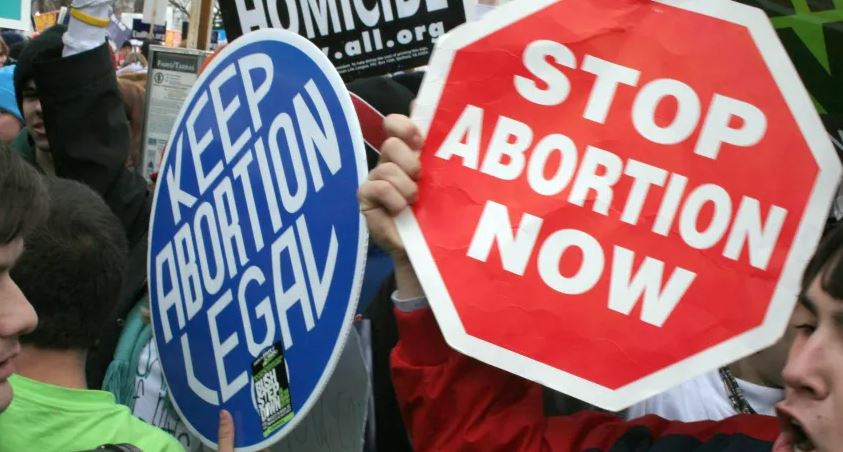It was the first interruption in the Supreme Court chamber since the court’s decision in June that eliminated women’s constitutional protections for abortion under Roe vs. Wade.
Three people were arrested Wednesday and charged with violating two federal laws involving Supreme Court procedures and the administration of justice after they disrupted oral arguments taking place in high court to protest its June decision against Roe vs. Wade that eliminated the federal right to abortion.
Court spokeswoman Patricia McCabe said the three women are being prosecuted at the High Court and will be transported to the Metropolitan Police Department’s Central Cell Block.
They are accused of violating a federal law that makes it illegal to “hold a speech or prayer” in the Supreme Court building and another law that prohibits demonstrating with the intent to interfere with the administration of justice.
A press release identified the protesters as Emily Paterson and Nikki Enfield from Virginia, and Ronalde Baker from Arizona.
The interruptions occurred at the start of arguments in a case involving the Bank Secrecy Act. A woman can be heard on the audio of the proceedings saying, “The right to choose cannot be taken away.”
The Supreme Court’s decision to overturn Roe v. Wade sparked outrage and protests across the country from abortion rights supporters, but Wednesday’s rally was the first to take place inside the courtroom.
The building has been closed to the public since the start of the COVID-19 pandemic and reopened to the public in October.
Judges and lawyers involved in Wednesday’s case were unaware of the protesters’ presence in court. It was the first such protest against the court’s decision on abortion rights.
The last time Supreme Court arguments were interrupted was in 2015, when opponents of rulings that lifted limits on political campaign money voiced their protest and even managed to get past a camera despite courtroom security.
Seven people were arrested in the January 2015 protest that took place on the fifth anniversary of the Citizen United court ruling that freed corporations and unions to spend as much as they wanted on congressional and presidential elections.

